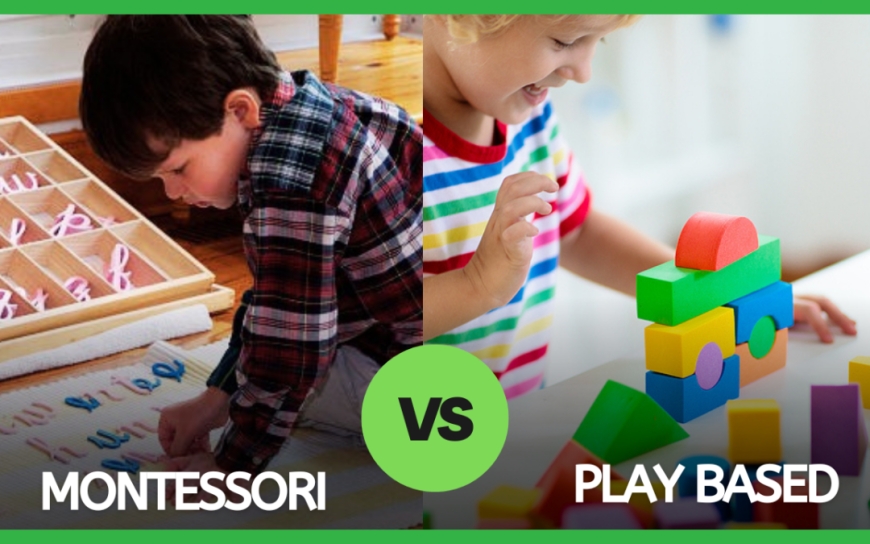Montessori vs. Play-Based Education: What’s Best for Your Child?
Discover the key differences between Montessori and play-based education to choose the best preschool approach for your child’s growth.

Choosing the right preschool for your child is one of the most crucial decisions parents face.
Montessori and play-based education are two popular approaches, each offering unique benefits. But how do they differ, and which is the better choice for your child’s needs? Here’s a detailed comparison to help parents make an informed decision.
1. Understanding Montessori Education
Montessori education emphasizes independence, structure, and hands-on learning. Children work with specialized materials at their own pace, guided by trained educators.
2. What is Play-Based Education?
Play-based learning focuses on exploration and creativity. It encourages children to learn through play, fostering social skills, imagination, and curiosity.
3. Focus on Individual Growth
Montessori classrooms are designed to support individual learning. Each child progresses at their own pace, working on activities that match their developmental stage.
4. Emphasis on Social Interaction
Play-based education prioritizes group activities, teaching kids how to share, cooperate, and solve problems together through play.
5. Classroom Environment
Montessori classrooms are calm, organized, and filled with educational tools. Play-based settings are more dynamic, featuring toys, art supplies, and play areas.
6. Role of Teachers
Montessori teachers act as guides, allowing children to direct their learning. In contrast, play-based teachers take a more active role, facilitating group activities and encouraging participation.
7. Academic Foundation
Montessori schools often focus on early academic concepts like math and language through hands-on activities. Play-based programs build foundational skills through storytelling, role play, and creative tasks.
8. Development of Life Skills
Montessori education nurtures practical life skills, such as cleaning, organizing, and self-care. Play-based learning develops social and emotional skills through peer interaction.
9. Best for Which Child?
Montessori might suit children who thrive on structure and focus, while play-based education is ideal for kids who learn best through active exploration and social engagement.
10. Parental Involvement
Both approaches value parental involvement, but Montessori often requires a stronger commitment to understanding its philosophy and materials.
Conclusion
Ultimately, the decision between Montessori and play-based education depends on your child’s personality and learning style. Both approaches offer valuable experiences that prepare children for their next academic steps. Visiting schools and observing classes can help parents choose the right fit.
By understanding these differences, you can select an environment that nurtures your child’s growth and sets them on a path to lifelong learning.
Tags:
- Montessori education
- play-based education
- Montessori vs play-based
- best preschool method
- early childhood education
- choosing preschool
- Montessori benefits
- play-based learning benefits
- preschool comparison
- parenting tips
- education methods for kids
- early learning approaches
- Montessori vs play-based pros and cons
- structured learning for kids
- creative learning for children




























